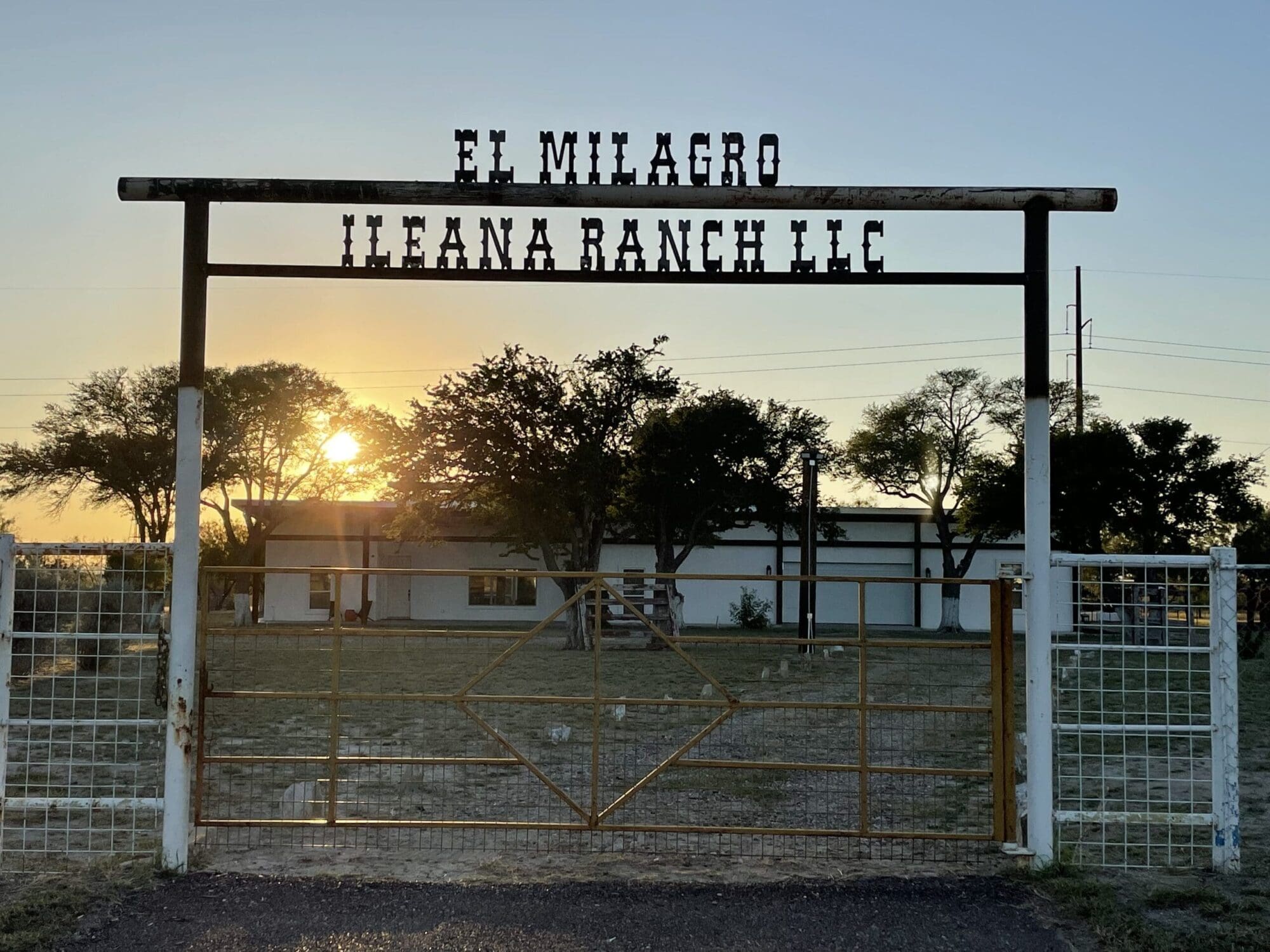A ranching family in South Texas is working to stop the Texas Department of Transportation from expanding U.S. Highway 83, which would force them to concede private and historic property.
Rene Ramirez is a 7th-generation Texan and a direct descendant of Spanish Texas settlers in the 1750s. He and his family have owned the Lopeño property called the El Milagro Ranch for nearly 200 years. Now, they are facing the threat of eminent domain for a highway expansion.
“U.S. Highway 83 runs 70 yards in front of our ranch home. It has four lanes meeting the traffic requirements,” Ramirez told Texas Scorecard. “The plan is to convert the four lanes to a divided four lanes with a 300′ right-of-way. No lanes will be added.”
According to Ramirez, dividing the four-lane highway is both unnecessary and a waste of public funds.
“What is happening here is an injustice,” Ramirez continued. “Spanish culture, Texas history, as well as cattle production, is literally being paved over for a highway divide that is unnecessary. No additional lanes are planned and statistically, this is a safe corridor.”
He also argued the ranch is part of Texas heritage, and that honoring previous generations is a precious gift that must be preserved.
The Ramirez family has conceded to eminent domain four times in the past. The first time resulted in the loss of over 2,000 acres of property—comprising 60 percent of their land—to the Lake Falcon Dam.
Ramirez said that TxDOT argues that the current highway expansion plan is for “safety” concerns and plans to “possibly” convert the highway into an interstate (I-2) in the next 30 years.
While the proposed project would cost Texas taxpayers millions, a minute-long Friday morning rush-hour traffic video shared by Ramirez on X shows only three cars using the highway during the time span.
In August 2024, Ramirez sent an application to the Texas Historical Commission requesting consideration for a designation in the National Register of Historic Places.
The application details the El Milagro Ranch and Ramirez family’s direct contribution to the history and development of industry in South Texas. For example, Ildefonso Ramirez, an ancestor of Rene Ramirez, was a pioneer in the region’s oil and gas boom and was “one of the first to sign a lease agreement and receive royalties.”
According to Rene Ramirez’s application, “As the now owner of porción 20, the heart of the Lopeño Oil and Gas Field, a well named after him was one of the biggest successes producing 40 million cubic feet per day with a pressure of 954 pounds per square inch at a depth of 2,350 feet.”
Agriculture Commissioner Sid Miller sent a letter to both TxDOT and the Texas Transportation Commission urging them to reconsider taking Ramirez’s land.
“It is essential that we, as a state, exercise the power of eminent domain wisely, prudently, and fairly,” Miller wrote. “I encourage the Commission and the Department to thoughtfully review their actions regarding [El Milagro] Ileana Ranch.”
“If there are alternative routes that the Department can explore, which would allow Mr. Ramirez’s ranch operations to remain intact, I ask that you consider those options carefully to determine if they would be more equitable for Mr. Ramirez and other property owners in similar situations,” the letter concluded.
TxDOT has not responded to a request for comment.





